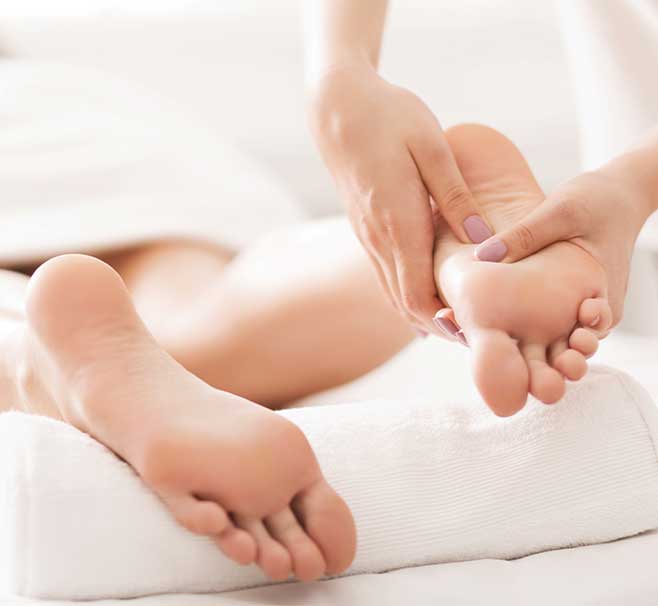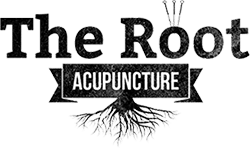
In the pursuit of enhanced well-being, the body’s immune system stands as a formidable guardian, defending against an array of threats. Beyond conventional approaches, the world of alternative medicine offers intriguing pathways to support and fortify our body’s defenses. Among these, the ancient practice of acupressure has gained prominence for its potential to bolster the immune system’s resilience. Rooted in the principles of traditional Chinese medicine, acupressure targets specific points on the body to stimulate energy flow and promote healing. Acupuncture is then introduced as a modality that can support immune function, leading to an exploration of acupressure as a non-invasive alternative.
How the Immune System Works
The functioning of the immune system involves a complex interplay between various cells, tissues, and organs that work together to recognize and eliminate foreign pathogens. The immune system is composed of two main components: the innate immune system and the adaptive immune system.
The innate immune system provides immediate, nonspecific defense against pathogens through physical barriers (such as skin) and cellular components (such as neutrophils and macrophages). On the other hand, the adaptive immune system mounts a more specific response by producing antibodies and activating specialized cells called T cells and B cells.
When a pathogen enters the body, it is first recognized by pattern recognition receptors on innate immune cells. These receptors detect specific molecular patterns associated with pathogens, triggering an inflammatory response to contain and eliminate them. This early response also recruits additional immune cells to the site of infection.
The adaptive immune system comes into play when innate immunity is insufficient to clear an infection. It recognizes specific antigens presented by infected or abnormal cells through antigen-presenting cells such as dendritic cells. T cells are activated to destroy infected host cells directly or stimulate B cell production of antibodies that can neutralize or opsonize pathogens for elimination.
Signs of Poor Immune System
Indicators of suboptimal functioning in the body’s defense mechanisms against pathogens can include frequent illnesses, prolonged recovery times, and a higher susceptibility to infections. These signs are often indicative of a weakened immune system, which is responsible for protecting the body from harmful bacteria, viruses, and other pathogens. When the immune system is not functioning optimally, it becomes less effective at identifying and eliminating these invaders.
These indicators suggest that the body’s defense mechanisms are not adequately responding to potential threats. It is important to address any signs of poor immune function promptly to prevent further health complications.
A holistic approach that includes lifestyle modifications such as maintaining a balanced diet, regular exercise, adequate sleep, stress management techniques, and avoiding smoking or excessive alcohol consumption can help support overall immune function. Additionally, seeking medical advice when necessary can aid in identifying underlying causes contributing to suboptimal immune responses.

Acupuncture for Immune Support
Research has shown that acupuncture, a traditional Chinese medicine practice involving the insertion of thin needles into specific points on the body, may have potential benefits in supporting immune function. Acupuncture is based on the concept of Qi (pronounced ‘chee’), an energy force that flows through the body along pathways called meridians. According to traditional Chinese medicine theory, when Qi is blocked or imbalanced, it can lead to illness and disease.
Several studies have investigated the effects of acupuncture on immune function. One study published in the Journal of Alternative and Complementary Medicine found that acupuncture treatment increased natural killer cell activity in cancer patients. Natural killer cells are an important component of the immune system, responsible for recognizing and destroying infected or cancerous cells.
Another study published in Evidence-Based Complementary and Alternative Medicine showed that acupuncture can enhance the immune response by modulating various immune factors such as cytokines and immunoglobulins. These findings suggest that acupuncture may help regulate immune function and promote overall health.
It is important to note that while these studies show promising results, more research is needed to fully understand the mechanisms behind acupuncture’s effects on immune function. Additionally, individual responses to acupuncture may vary, and it should be used as a complementary therapy alongside conventional medical treatments.
What is Acupressure?
Acupressure is a traditional healing technique that involves applying pressure to specific areas of the body, known as acupoints, to promote relaxation and alleviate various ailments. This practice is rooted in ancient Chinese medicine and is believed to stimulate the body’s natural healing abilities.
Acupressure works by targeting specific acupoints along meridians or energy pathways in the body. These meridians are thought to correspond to different organs and systems within the body.
To better understand how acupressure works, here are four key points:
While further research is needed to fully understand its mechanisms of action, many individuals find relief from various health conditions through regular acupressure sessions. As with any alternative therapy, it is important to consult with a qualified practitioner before incorporating acupressure into your healthcare routine for optimal results.
Stimulating the Points
By applying pressure to specific areas on the body, known as acupoints, individuals can potentially stimulate various physiological responses. Acupressure is believed to work by unblocking or balancing the flow of energy, known as qi, along meridians in the body. These meridians are thought to be connected to different organ systems and functions.
According to traditional Chinese medicine (TCM), stimulating certain acupoints can enhance immune function and support overall health. While research on acupressure specifically targeting the immune system is limited, several studies have explored the effects of acupuncture on immune-related conditions.
One study published in The Journal of Alternative and Complementary Medicine found that acupuncture treatment significantly increased natural killer cell activity in patients with chronic fatigue syndrome. Another study published in Neuroimmunomodulation showed that acupuncture improved immune response and reduced inflammation markers in patients with allergic rhinitis.
| Acupoint | Location | Indications |
|---|---|---|
| L14 | On the Hand | Boosts immunity and relieves common cold |
| SP6 | On the Foot | Enhances overall immune function |
| GV14 | At the base of the neck | Stimulates white blood cell production |
While more research is needed to fully understand how acupressure affects the immune system, these findings suggest that stimulating specific acupoints may have potential benefits for enhancing immune function. It is important to consult a qualified practitioner before attempting self-treatment with acupressure.
Effectiveness of Pressure Points
The effectiveness of pressure points in traditional Chinese medicine remains a subject of ongoing research and debate. While there is some evidence to suggest that stimulating specific pressure points can have therapeutic effects, the overall scientific consensus on their efficacy is still lacking. Some studies have shown positive outcomes when certain pressure points are targeted, but these findings are often limited by small sample sizes and methodological flaws.
One reason for the ongoing debate surrounding the effectiveness of pressure points is the difficulty in conducting rigorous scientific studies in this area. Traditional Chinese medicine operates within a holistic framework that considers the body as a whole, rather than focusing solely on individual symptoms or conditions. This makes it challenging to design randomized controlled trials that meet Western scientific standards.
Furthermore, there is currently limited understanding of the underlying mechanisms through which pressure point stimulation may exert its effects. It has been proposed that applying pressure to specific points can stimulate nerve pathways, release endorphins, or modulate energy flow within the body. However, more research is needed to fully elucidate these mechanisms and determine their clinical significance.
Acupressure is a holistic approach that can be used to support the immune system. By stimulating specific pressure points, such as Lung 7, Stomach 36, and Spleen 6, acupressure can help improve immune function and promote overall well-being.
These points have been found to have an impact on the body’s immune response and can help address signs of a weakened immune system. While more research is needed to fully understand the effectiveness of acupressure for immune support, it holds promise as a complementary therapy for enhancing immune function.
